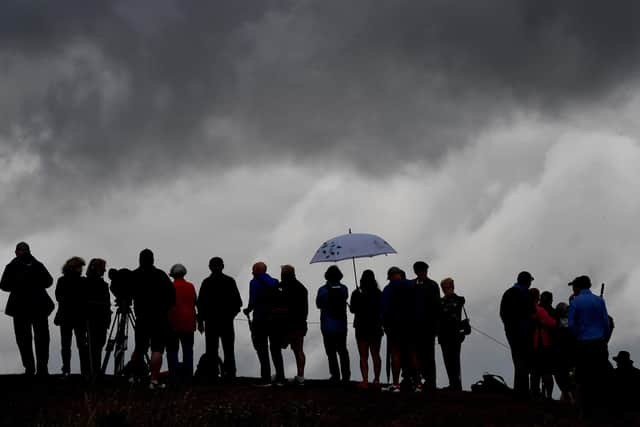State of the Climate: Report shows UK is hotter, wetter, sunnier and sinking faster than ever before
The latest annual State of the UK Climate report from the Met Office shows recent decades have been warmer, wetter and sunnier than in the 20th century.
It also reveals the UK is heating up at a slightly faster rate than the global average.
Advertisement
Hide AdAdvertisement
Hide AdThe report, which is based on records of temperature, rainfall, sunshine and wind speed from a network of land-based weather stations, highlights the impacts of climate change across the UK.
It comes just days after a blazing heatwave saw high-temperature records smashed across the country, with thermometers hitting 40.3C at Coningsby in Lincolnshire and 34.8C in the Scottish Borders.
The nation’s top 10 hottest and five of its 10 wettest years since 1836 have all occurred since 2000.
The 21st century so far has been warmer than any 20-year period over the past 300 years.


The report shows 2021 was the 18th warmest year since 1884 and 0.1C warmer than the average for the past three decades.
Last year included the UK’s ninth warmest summer and an autumn that came third equal for heat.
Conversely, winter and spring 2021 were cooler than the recent average.
Last year was unexceptional overall with regard to sunshine.


Advertisement
Hide AdAdvertisement
Hide AdHowever, April was the sunniest month of the whole year and scooped first equal with 2020 for the UK’s overall sunniest calendar month since 1919.
The UK has enjoyed around two per cent more hours of bright sunshine in the past 10 years than the recent 30-year average and eight per cent more than between 1961 and 1990.
Winters have been three per cent sunnier than the 1991 to 2020 average and 13 per cent sunnier than in 1961 to 1990.
Sunshine in spring 2021 was up six per cent and 15 per cent compared to the previous periods.
The year saw the UK’s fifth driest April and second wettest May since 1836.
Parts of Scotland and Northern Ireland were drier than usual, while rainfall totals were near or above average for much of England and Wales.
Western Scotland was particularly dry, with only 85 per cent of customary rain in many areas.
Shetland was also less wet than usual.
The UK’s soggiest February, April, June, November and December on record have all been since 2009, as well as the wettest winter.
Advertisement
Hide AdAdvertisement
Hide AdAnnual rainfall has increased overall, with levels in the past decade 10 per cent higher than between 1961 and 1991.
Summers have become around 15 per cent wetter over the pas 10 years, while winter rainfall has risen by as much 26 per cent.
Data shows sea levels have risen by 16.5cm since 1900, but the annual rate of rise is more than twice that seen a century ago.
This is exposing more parts of the coastline to powerful storm surges and high winds, which damage the environment and homes.
However, 2021 – with the exception of Storm Arwen – was less windy than most other years in recent decades.
But it was the third snowiest, after 2013 and 2018, though there has been a general decline in the number and severity of snow events since the 1960s.
Comments
Want to join the conversation? Please or to comment on this article.
